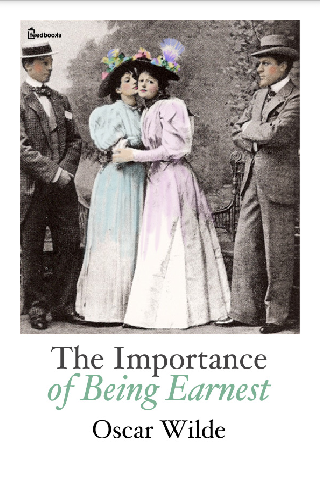Tags
books, entertainment, Escapism, Farcical Comedy, Funny, Life, literature, Oscar Wilde, Sophie Kinsella, The Importance of Being Ernest, Victorian, victorian lifestyle
This book I would recommend for the simple reason that, it is not like any of the other English stories set in the 19th Century. For one, it is funny! Honestly, I did not expect people in the 1890 Britain to be funny.
I mean, I understand that Shakespeare in his time did spin out a few comedies, but they were hardly the kind that might even prompt you to at least type a ‘lol’ as a response. Then there was Jane Austen, if she was the Sophie Kinsella of her day, I am just glad I was born well into the late 20th century! At first, you are surprised by the humor Wilde employs. You check if you are reading some modern day American novelist and not some 19th century English play. Once you have been convinced otherwise… Well.. you never truly allow yourself to be convinced!
This comedy by Oscar Wilde, is termed as a ‘farcical comedy’. It is a humourous take on the Victorian lifestyle. The characters themselves seem to be quite harrowed by the social roles that they need to play out, for they have invented fictious characters in the country (in the case of Algernon) or in London (as in the case of John). Algernon has even gone on to the extent of naming the whole act of escaping reality as “Bunburying”.
The play in itself, is quite a short tale, with three short acts that smoothly and swiftly run into the next. At some point, two young women find themselves betrothed to ‘Ernest’, whereas until all the confusion is resolved in the end, there is no real character by that name.
One interesting titbit I did come across – in my post-reading research – was that this was Oscar Wilde’s last play and soon after this, the world came to know about Wilde’s sexual orientation. Some even argue that the title has an underlying gay reference, since ‘ernest’ at that time was much like a euphemism for ‘homosexual’.
All in all, a fun(ny) read!

